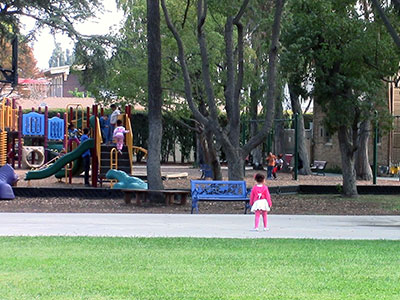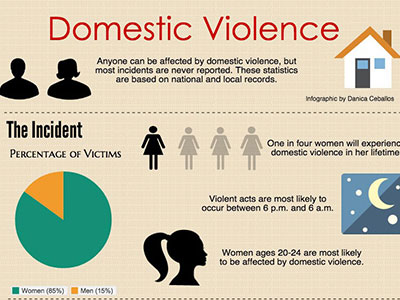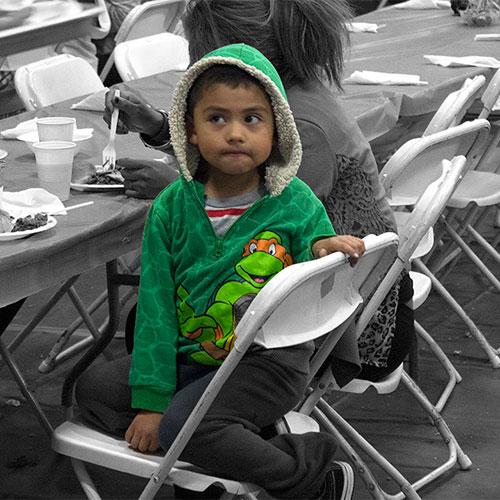Los Angeles County has more than 10 times the number of animal shelters than domestic violence shelters, even though one in four women and one in seven men have been victims of domestic abuse.
With recent media attention on domestic violence incidents, “Phone calls [to hotlines] spike,” said Los Angeles County Domestic Violence Council Executive Director Olivia Rodriguez. “People realize that I’m a victim or I know a victim. It allows the dialogue to begin.”
The problem is there are not many places for these survivors to go when they leave their abusers.
In 2008, there were 18 shelters in the County. Now, there are 15, according to Rodriguez. By closing these three shelters, the County is unable to serve and shelter more than 40 women who could have been offered services at these facilities, Rodriguez said.
She attributed many of these cutbacks in facilities and programs to former Gov. Arnold Schwarzenegger’s budget cuts for violence shelters in 2009. He eliminated a program worth $20.4 million designated to this cause.
Three Shelters Serving Women in Los Angeles County
Alexandria House Provides More Than a Place to Stay
Alexandria House offers services for current residents and former residents, as well as their children.
The Good Shepherd Shelter Continues to Grow
Good Shepherd is the oldest shelter in LA and is currently fundraising to expand in 2015.
The House of Ruth Serves Women Near and Far
The House of Ruth borders LA and San Bernardino counties and works with women in both areas.
The House of Ruth is a domestic violence shelter in Pomona that relies on funding from all levels of government. Located on the border between Los Angeles and San Bernardino counties, it receives money from both localities and offers services to women and children living in these areas.
“Every year, the federal government undergoes change,” said Pat Bell, director of development for the House of Ruth. “Part of the change always leaves us in anticipation of what’s going to happen with our funding, so we’re always waiting to hear whether there’s been a cut. We usually try to anticipate what’s coming so we can source from other areas.”
In addition to its dependence on government money, the House of Ruth relies on private donations. Since it was founded in 1977, the shelter has maintained connections with donors.
“We are looking for the next generation of funders and it’s interesting because we’re finding that many of our funders that are seniors are bringing in their children and even grandchildren as the next level,” added Bell.
Some of the shelters in LA County avoid waiting for the budget to come out every year by functioning completely on private funding.
The Good Shepherd Shelter is one of those facilities. It is the oldest shelter in the County, and it was founded by Catholic nuns. Though many shelters are struggling to stay open, Good Shepherd continues to expand.
“The lack of government funding has been hard on those shelters who accept government funding. It’s constantly changing and very difficult to forecast your financial base against the whims of whatever is popular in the government structure that you are most funded from,” said Kathleen Buczko, director of development for the Good Shepherd Shelter. “The sisters decided early on that that took too much effort away from what they were truly called to do, which is to serve women and children.”
Domestic violence survivors can also find help from organizations that have a more general focus.
Alexandria House is a homeless shelter in Los Angeles that provides housing, therapy and community support for women and children. Many of the residents have escaped an abusive relationship and moved into Alexandria House after leaving an emergency shelter.
“It’s very very heartbreaking because the city is not taking care of what needs to be done,” said Ronda Minks, development support of Alexandria House. “A mother might take her child out of the situation because it’s scary and unsafe, and there’s nowhere to go because usually the male has control of all the money.”
This shelter focuses on finding a place for the women to live and helping them to become and remain financially stable.
“I have more confidence in taking responsibility for my life outcomes,” explained Willa Habersham, a former Alexandria House resident. “Alexandria House has actually encouraged me to be strong, to face my adversities and to challenge myself. They’ve encouraged me by loving me.”
None of these shelters can survive solely on government funding. And while these shelters have helped thousands of women, there are many more domestic violence survivors who cannot access these types of resources because there are simply not enough.
“It’s everywhere,” said Sr. Donna Miles, shelter director at the Good Shepherd. “It’s in every class and every culture, and there’s still a huge need, unfortunately.”





